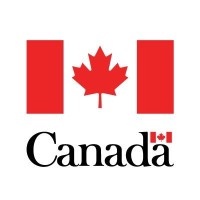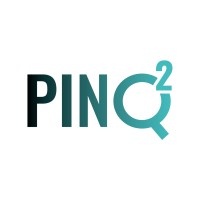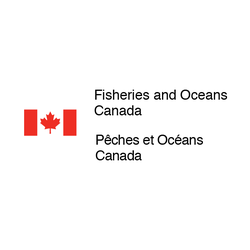
Open
Trade Commissioner Service — Canadian International Innovation Program (CIIP)
Last Update: October 27, 2025
Canada
Funding for international industrial R&D
Grant and Funding
At a glance
Funding available
Financing goals
Integrate new technologies
Research and experimental development
Conduct research
See more
Eligible Funding
- Maximum amount : 600,000 $
- Up to 50% of project cost
Timeline
- Unspecified
Eligible candidates
Eligible Industries
- Professional, scientific and technical services
Location
- Canada
Legal structures
- For-profit business
Annual revenue
- All revenue ranges
Organisation size
- 500 employees maximum
Audience
- Canadians
- Startups
Overview
Get up to $600,000 in funding to cover up to 50% of research and development project expenses while working with a foreign partner in Brazil, China, India, Israel or South Korea.
Activities funded
- Development of research and development (R&D) partnerships with foreign companies to foster international collaboration.
- Collaborative R&D projects aimed at co-developing new or improved products, services, or processes with commercial potential.
- Adaptation of existing technologies to new international markets.
- Validation of innovative products or technologies through technical and business assessments with global partners.
- Participation in networking and matchmaking activities to establish or expand international R&D collaborations.
Examples of admissible projects:
$ 120,000
Develop a new software solution in collaboration with a partner in Brazil
$ 167,000
Develop a medical device in cooperation with a partner in India
$ 111,500
Study the impact of climate change in Lakeland areas with Brazilian counterparts
$ 175,000
Research renewable energy solutions in partnership with a firm in China
$ 88,000
Create a cultural exchange program with partners in Israel
$ 102,000
Enhance agricultural practices with a partner in South Korea
Eligibility
- The applicant must be an incorporated, for-profit small or medium-sized enterprise (SME) with up to 500 full-time equivalent employees.
- The company must be ready to collaborate on a research and development (R&D) project with a foreign partner in Brazil, China, India, Israel, South Korea, or Taiwan.
- The project must aim to commercialize new or improved products, services, or processes.
- The applicant must own or co-own the intellectual property of the technology to be commercialized (for partnership development activities).
- The company must have sufficient resources to finance their share of project or partnership development costs.
Who is eligible?
- Canadian small and medium-sized enterprises (SMEs) that are incorporated and for-profit
Who is not eligible
- Companies that are entirely funded by Canadian government organizations (federal, provincial, territorial, municipal, or Crown corporations).
Eligible expenses
- Salaries for personnel involved in the project
- Contractors' fees
- Economy class airfare
- Accommodations
- Meals (per diems)
- Local transportation
- Translation and marketing materials
- Conference and tradeshow fees
- Photocopying or printing of materials
Eligible geographic areas
- Canadian companies incorporated anywhere in Canada are eligible.
Selection criteria
The evaluation and selection of projects for the Canadian International Innovation Program (CIIP) are based on specific criteria to ensure alignment with the grant's objectives of promoting international R&D collaboration.
- Quality and scope of the proposed collaboration with foreign partners.
- Potential for successful commercialization of the developed or adapted technology.
- Strength and credibility of the Canadian and foreign partners involved.
- Alignment of the project with targeted international markets such as Brazil, China, India, Israel, South Korea, and Taiwan.
- Efficient use of resources and feasible project implementation plan.
How to apply
1
Register with NRC IRAP
- Provide basic information about your organization.
- Get assigned an Industrial Technology Advisor (ITA) from NRC IRAP.
2
Submit an Expression of Interest (EOI)
- Fill out the EOI form with preliminary project details.
- Submit the EOI to your NRC IRAP representative for evaluation.
- Await invitation to submit a detailed proposal if qualified.
3
Submit an International Consortium Project Proposal (ICPP)
- Collaborate with your foreign partner to complete the ICPP package.
- Submit the ICPP to both NRC IRAP and the partner country's funding body.
4
Finalize National Funding Body Proposal and Funding Agreement
- Work independently with the national funding bodies.
- Prepare and sign funding proposals and legally binding agreements.
- Coordinate with NRC IRAP to finalize a Contribution Agreement (CA).
Additional information
- Applicants are not required to be current clients of the Trade Commissioner Service or NRC IRAP at the time of application.
- Progress and final reporting will be necessary as recipients must demonstrate continued compliance with contribution agreement terms to receive reimbursements.
- Partnership agreements must detail partner roles, intellectual property frameworks, and budget allocations.
- No annual minimum revenue requirement exists, but companies must demonstrate financial capacity to support their share of project costs.
Contacts
innovation@international.gc.ca
Canada
Apply to this program
Frequently Asked Questions about the Trade Commissioner Service — Canadian International Innovation Program (CIIP) Program
Here are answers to the most common questions about the Trade Commissioner Service — Canadian International Innovation Program (CIIP). This section explains what the program is, how much funding is available, eligibility requirements, application deadlines, and other important details to help you determine if this grant is right for your business.
What is the Trade Commissioner Service — Canadian International Innovation Program (CIIP)?
How much funding can be received?
What expenses are eligible under Trade Commissioner Service — Canadian International Innovation Program (CIIP)?
What is the deadline to apply?
Is the Trade Commissioner Service — Canadian International Innovation Program (CIIP) a grant, loan, or tax credit?
Who are the financial supporters of the Trade Commissioner Service — Canadian International Innovation Program (CIIP)?
Who is eligible for the Trade Commissioner Service — Canadian International Innovation Program (CIIP) program?
Who can I contact for more information about the Trade Commissioner Service — Canadian International Innovation Program (CIIP)?
Where is the Trade Commissioner Service — Canadian International Innovation Program (CIIP) available?
Are startups eligible for the Trade Commissioner Service — Canadian International Innovation Program (CIIP) program?
Apply to this program
More programs like this

Grant and FundingClosed
Industrial Research Assistance Program (IRAP) – AI Assist
National Research Council Canada (NRC)Supports Canadian SMEs in adopting and integrating advanced AI solutions

Wage Subsidies And InternsOpen
Industrial Research Assistance Program (IRAP) — Youth Employment Program (YEP)
National Research Council Canada (NRC)Money to hire a student

Researchers And FacilitiesPartnering and CollaborationWage Subsidies And InternsOpen
Mitacs Accelerate
MitacsConnect organizations with academia for research and innovation collaboration

Grant and FundingClosed
ISED — Artificial intelligence (AI)
Innovation, Science and Economic Development Canada (ISED)Supports testing innovative AI prototypes for Canadian government needs

Grant and FundingOpen
Global Innovation Clusters
Innovation CanadaFinancial assistance to work in collaboration on innovation projects

Grant and FundingOpen
IP for Business
Canadian Intellectual Property Office (CIPO)Intellectual property training, tools and expertise

Wage Subsidies And InternsOpen
ECO Canada — Student Work Placement Program
ECO CanadaMoney to hire students for an environmental co-op

Grant and FundingClosed
Enhanced Road Safety Transfer Payment Program (ERSTPP)
Transport CanadaFunds projects to enhance road safety and reduce traffic injuries

Researchers And FacilitiesExpert AdviceOpen
Digital and Quantum Innovation Platform — PINQ²
Plateforme d'Innovation Numérique et QuantiqueGet expert advice and the use of a high-tech environment

Grant and FundingClosed
Canada Nature Fund for Aquatic Species at Risk (CNFASAR)
Fisheries and Oceans Canada (DFO)Supports recovery and protection of aquatic species at risk
Sign up to our platform to access the Trade Commissioner Service — Canadian International Innovation Program (CIIP) information sheet for free
Get access to 4,000+ programs, practical guides, personalized alerts, and an AI assistant to support your grant applications.